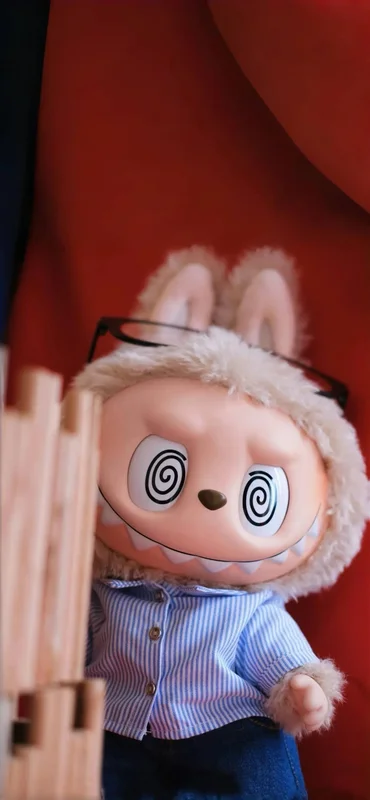ラブブのめまいゲームフェイス (Labubu no memai gēmu feisu) This translation captures the essence of the title in Japanese, maintaining the playful and whimsical tone of "Labubu" while accurately conveying "dizzy game face."
モバイルレッド3D
螺旋状の目とメガネをかけたラブブのフィギュアが、赤い背景の隣にいくつかの木製ブロックと並んでいます。
その他の壁紙

Labubu's City Stroll on a Sunny Day
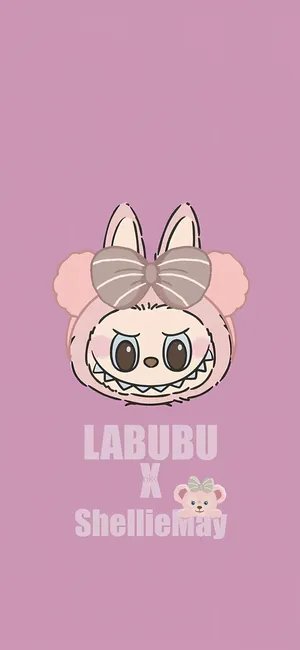
ラブブ シェリーメイのピンクの友情壁紙 (Labubu ShellieMay no Pinku no Yūjō Kabe Kami)

ラブブのコカ・コーラのくつろぎデイ (Labubu no Coca-Cola no kutsurogi Dei) This translation keeps the original meaning while adapting it into natural Japanese. "Cozy Day" is translated as "くつろぎデイ" (kutsurogi Dei), which conveys the idea of a relaxing, comfortable day. "Labubu's" is translated as "ラブブの" (Labubu no), indicating possession. "Coca-Cola" remains the same as it's a widely recognized brand name.

ラブブのサニーオーバーオールの冒険 (Rabubu no Sanī Ōbāōru no Bōken) This title translates to "Labubu's Sunny Overalls Adventure" in Japanese, maintaining the playful and adventurous tone of the original.

Blushing Labubu on a Light Blue Yoga Mat

ピンク・ラブブの庭での不機嫌な空想 This translation captures the essence of the title while maintaining a natural flow in Japanese. Let me know if you'd like further adjustments!

お祝いのラブラブ: クリスマスの夢景色

The title "Mischievous Labubu Bunny on Pink" can be translated into Japanese as: **「ピンクのいたずらラブバニー」** (Pinku no Itazura Rabu Banī) Here’s the breakdown: - **Mischievous** = いたずら (Itazura) - **Labubu Bunny** = ラブバニー (Rabu Banī) - **on Pink** = ピンクの (Pinku no) This translation keeps the playful and cute tone of the original title.

The title "Labubu in festive dragon suit with gifts" can be translated into Japanese as: **「祝祭のドラゴンスーツを着てプレゼントを持ったラブブ」** This translation captures the essence of Labubu wearing a festive dragon suit and holding gifts.
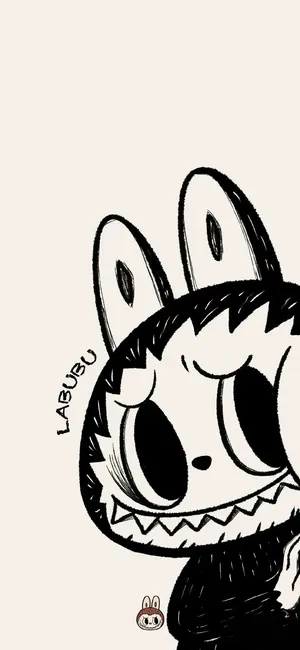
タイトルを日本語に翻訳すると以下のようになります: **「ラブブ スニークピーク:大きな目、にっこり笑顔」** このタイトルは、キャラクター「ラブブ」の特徴である大きな目と笑顔に焦点を当てた内容を表しています。

The title "Skater Labubu Racing Along the Sidewalk" can be translated into Japanese as: **「スケーター・ラブブ、歩道を疾走」** (Sukētā Rabubu, hodō o shissō) Here’s the breakdown: - スケーター (Sukētā) = Skater - ラブブ (Rabubu) = Labubu (a character name, kept in katakana) - 歩道 (hodō) = Sidewalk - 疾走 (shissō) = Racing or dashing This translation retains the essence of the original title while adapting it naturally into Japanese.
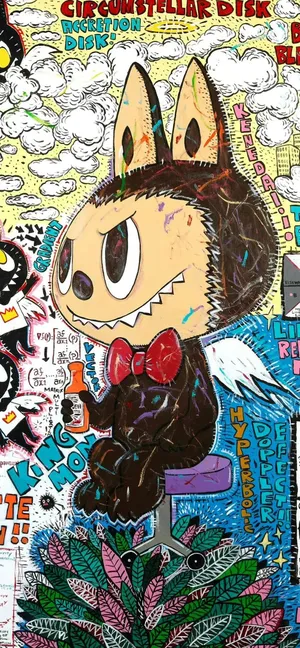
The title "Labubu's Cosmic Brew" can be translated into Japanese as: **ラブブの宇宙の醸造 (Rabubu no Uchū no Jōzō)** Here's the breakdown: - **ラブブ (Rabubu)**: Labubu - **宇宙 (Uchū)**: Cosmic/Space - **醸造 (Jōzō)**: Brew/Brewing This translation captures the essence of the title while maintaining its playful and imaginative tone.
その他の商品

Labubu ぬいぐるみキーチェーン、6インチ マカロン人形デザイン、ビニールフェイスコレクション、モダンホームデコレーション (イエロー)
$15.99 19.99
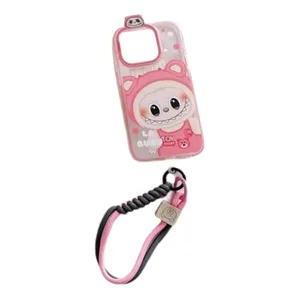
Seodon LABUBU iPhone対応 TPUフォンカバー リストストラップ付き スリム かわいい 傷防止 背面 おしゃれ 耐衝撃 保護ケース メンズ レディース ガールズ (13 Pro Max, ピンク)
$13.99

Labubu Lover かわいい Labubu The Monsters クリスマス レインボー スローピロー
$19.99

ETPYWSYX Labubu 2-in-1 Two-use Pillow Blanket, Car, Sofa Cushion, Office Rest Pillow Blanket (labubu Brown Pillow)
$46.57

Labubu 服 5点セット - Labubu用着せ替え服、17cm Labubu人形用 シックスタイルセット - 服 + 薄ピンクのハート型ベルベット帽子 + 小型カメラ + メガネ + キャンバスシューズ (スタイルA)
$14.90 24.99
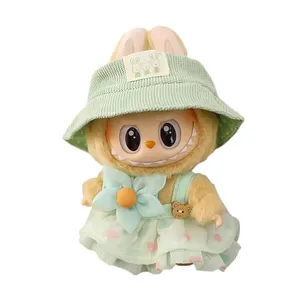
ラブブ服、ラブブ衣装、ラブブキーホルダーアクセサリー、かわいいカワイイファッションハット&オーバーオールセット3点セット 15cm&17cmラブブ用、ラブブ用ハットと服
$14.99
